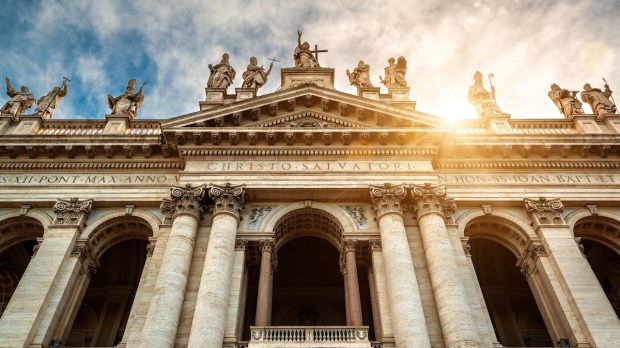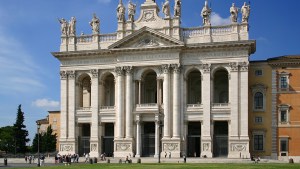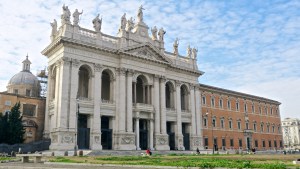Whenever November 9 rolls around each year, many Catholics scratch their heads when they hear it is the feast of the “Dedication of St. John Lateran.”
Often the first question is, “What is St. John Lateran?”
After they discover that it is a church in Rome, the second question is, “Why do I care?”
The celebration of a seemingly random church in Rome can be perplexing, but after discovering the symbolism behind the feast, it makes much more sense.
Mother of all churches
Prior to the 4th century, Christians were generally not allowed to build public churches, forcing them to gather together in people’s homes or in the catacombs.
Pope Benedict XVI explained in an Angelus message in 2008 how the edict of Emperor Constantine in 313 paved the way to the first physical church, which then became the “mother” of all churches:
The liturgy today has us celebrate the Dedication of the Lateran Basilica, called the “mother and head of all the Churches of the Urbe and Orbe.” Actually, this Basilica was the first to be built after the Edict of the Emperor Constantine who, in 313, conceded to Christians the freedom to practice their religion. The same Emperor gave Pope Miltiades the ancient estate of the Laterani family and had the Basilica, the Baptistery and the Patriarchate built for him, the latter being the Bishop of Rome’s residence, where Popes resided until the Avignon era. The dedication of the Basilica was celebrated by Pope Silvester in about 324 and the temple was dedicated to the Most Holy Saviour; only after the 6th century were the names of Sts John the Baptist and John the Evangelist added, from which came its common name.
This certainly is significant, as spiritually speaking our local parish churches are derived in some way from St. John Lateran.
Living stones
Secondly, this feast has always been a way in which to highlight how we are “living stones,” as Pope Benedict XVI points out in his address:
The Word of God during this Solemnity recalls an essential truth: the stone temple is the symbol of the living Church, the Christian community, that the Apostles Peter and Paul had, in their Letters, already understood as a “spiritual building”, constructed by God with the “living stones” that are the Christians, upon the one foundation that is Jesus Christ, who is in turn compared to the “cornerstone” cf. 1 Cor 3: 9-11, 16-17; 1 Pt 2: 4-8; Eph 2: 20-22). “Brethren,… you are God’s building”, St Paul writes, and he adds, “God’s temple is holy, and you are that temple” (1 Cor 3: 9c, 17).
The collect prayer for this feast also recalls this symbolism:
O God, who from living and chosen stones prepare an eternal dwelling for your majesty, increase in your Church the spirit of grace you have bestowed, so that by new growth your faithful people may build up the heavenly Jerusalem. Through our Lord Jesus Christ, your Son, who lives and reigns with you in the unity of the Holy Spirit, God, for ever and ever.
While the Dedication of St. John Lateran may seem random, the Church in her wisdom continues to celebrate it, calling to mind all the symbolism packed into this feast.



